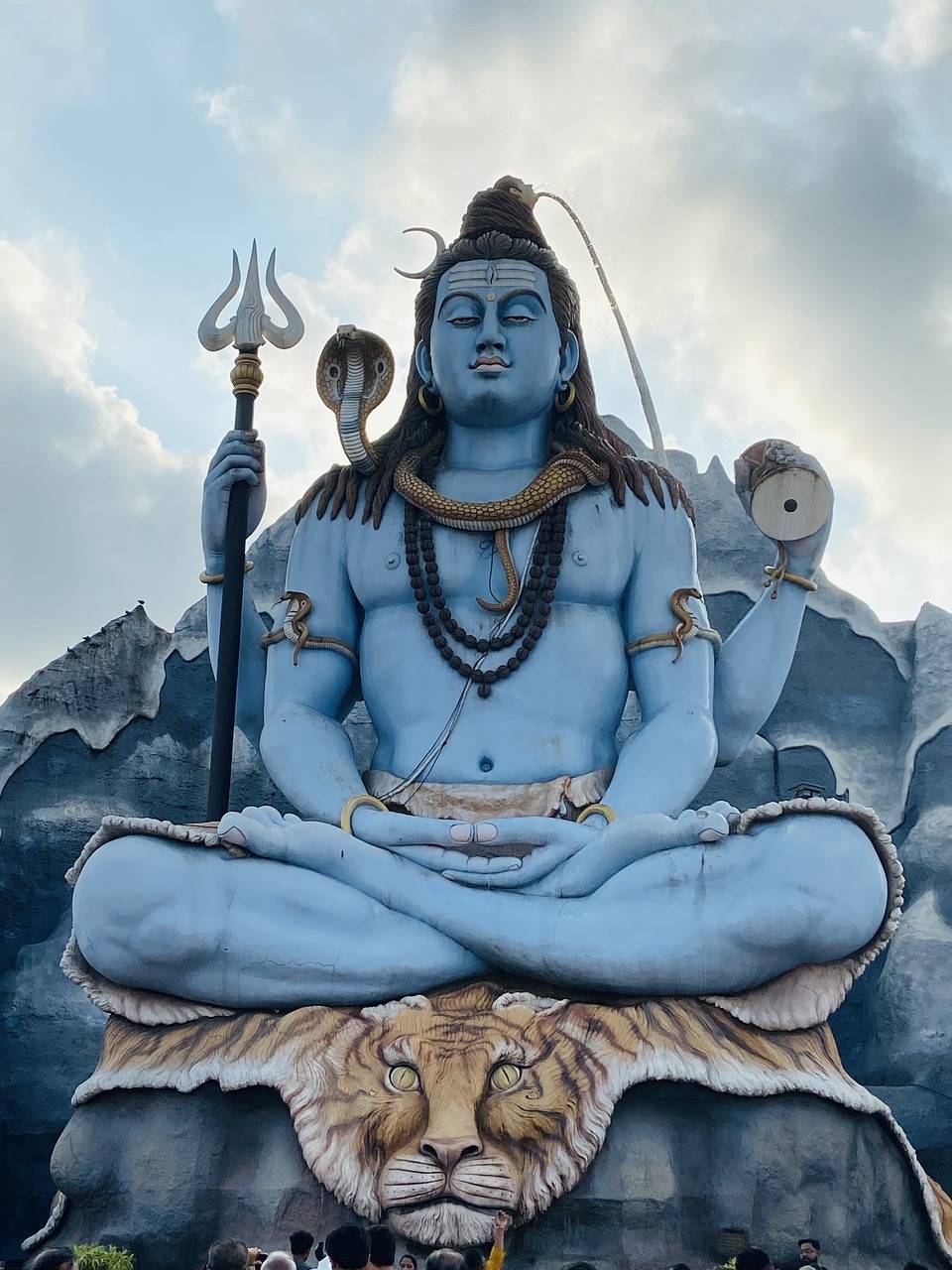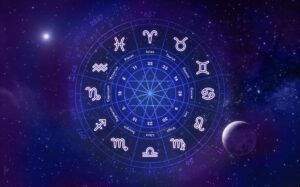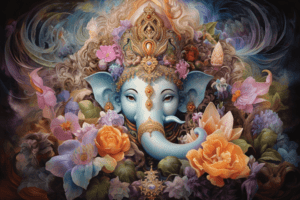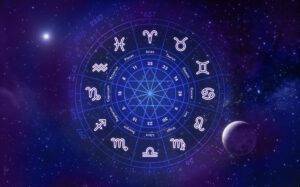Shiva Mantra For Positive Energy And Great Divine Blessings
The “Shiva Mantra” refers to any mantra dedicated to Lord Shiva, one of the principal deities in Hinduism. Lord Shiva is often seen as the destroyer and transformer within the Hindu trinity, which also includes Brahma (the creator) and Vishnu (the preserver).
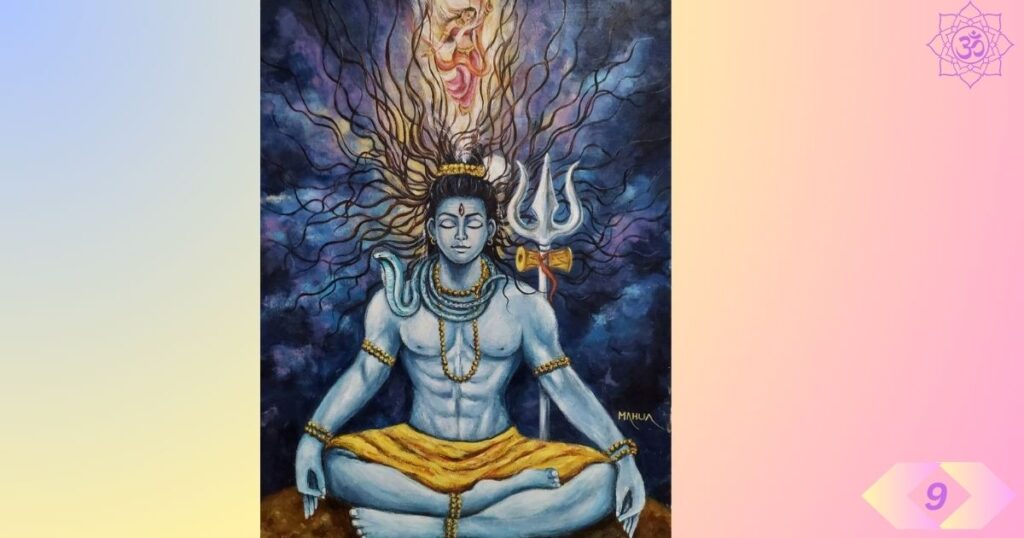
One of the most well-known and widely recited mantras dedicated to Lord Shiva is the
1.”Om Namah Shivaya”
This mantra consists of five sacred syllables:
ॐ (Om) – Represents the universal sound or the sound of creation.
नमः (Namah) – Means “I bow to” or “I honor.”
शिवाय (Shivaya) – Refers to Lord Shiva.
When chanted or repeated, this mantra is a form of devotion to Lord Shiva and can be used for meditation or as part of one’s daily spiritual practice. It is believed to have various spiritual and healing benefits and is thought to help in attaining inner peace and spiritual realization.
There are many other Shiva mantras, each with its own significance and purpose. Some other popular Shiva mantras include:
2. “Om Maheshwaraya Namah”
Certainly, here are some more Shiva mantras that are dedicated to Lord Shiva, each with its own significance and benefits:
3. Maha Mrityunjaya Mantra:
“Om Tryambakam Yajamahe Sugandhim Pushtivardhanam
Urvvarukamiva Bandhanan Mrityor Mukshiya Maamritat”
This mantra is also known as the “Great Death-Conquering Mantra” and is chanted for healing, protection, and liberation from the cycle of birth and death.
4. Shiva Panchakshara Mantra:
“Om Namah Shivaya”
This is the five-syllable mantra mentioned in the previous response. It is one of the most popular Shiva mantras and is often chanted during meditation or devotional practices.
5. Rudra Gayatri Mantra:
“Om Tatpurushaya Vidmahe Mahadevaya Dhimahi
Tanno Rudrah Prachodayat”
This mantra is a form of the Gayatri mantra dedicated to Lord Rudra (another name for Shiva). It is chanted to seek the divine grace of Lord Shiva.
6.Shiva Dhyan Mantra:
“Panchaksharam Idam Punyam Yah Pathet Shiva Sanidhau
– Shivalokamavaapnoti Shivena Saha Modate”
This mantra is recited while meditating on Lord Shiva. It is believed to help the practitioner attain the abode of Shiva and find joy in his divine presence.
7.Shiva Ashtottara Shatanamavali:
This is a mantra where 108 names of Lord Shiva are recited, each highlighting a different aspect or quality of Shiva. It is chanted as a form of worship and to invoke the blessings of Lord Shiva.
8.Shiva Maha Mantra:
“Hara Hara Mahadev Shambhu Kashi Vishwanath Gange”
This mantra is a salutation to Lord Shiva and various aspects associated with him, such as Kashi (Varanasi) and the holy Ganges river.
9.Shiva Tandava Stotram:
This is a sacred hymn composed by Ravana, the demon king of Lanka, in praise of Lord Shiva’s cosmic dance. It describes the grandeur and power of Lord Shiva.
Chanting or meditating on these Shiva mantras is believed to bring spiritual growth, inner peace, and divine blessings. Depending on your spiritual goals and preferences, you can choose the Shiva mantra that resonates with you the most and incorporate it into your daily practice.
Uses Of Shiva Mantra
Shiva mantras, like the Maha Mrityunjaya Mantra and “Om Namah Shivaya,” have several uses and benefits for individuals who practice them. Here are some of the common uses and purposes of Shiva mantras:
1. Meditation: Shiva mantras are often used in meditation to help individuals focus their minds, attain inner peace, and connect with the divine. Chanting a Shiva mantra during meditation can lead to a deep sense of tranquility and spiritual realization.
2. Healing: The Maha Mrityunjaya Mantra is believed to have healing properties. It is chanted with the intention of promoting physical and emotional healing, as well as protection from illnesses or life-threatening situations.
3. Protection: Shiva mantras are considered protective. Chanting these mantras is thought to safeguard the practitioner from negative energies, obstacles, and potential harm. They are often recited to invoke the protective energy of Lord Shiva.
4. Spiritual Growth: Practicing Shiva mantras can lead to spiritual growth and self-realization. These mantras help individuals in their spiritual journeys by deepening their connection to the divine and fostering a sense of devotion.
5. Stress Reduction: Chanting Shiva mantras can help reduce stress and anxiety. The rhythmic repetition of these mantras can have a calming effect on the mind and body, promoting relaxation and mental clarity.
6. Devotional Practice: Many people use Shiva mantras as part of their daily devotional practices and rituals. These mantras are a way to express love and devotion to Lord Shiva, seeking his blessings and grace.
7. Sankalpa (Intention Setting): Shiva mantras can be chanted with specific intentions or desires in mind. Some individuals use them to set positive intentions or seek guidance in various aspects of life, such as relationships, career, or personal growth.
8. Purification: Chanting Shiva mantras is believed to purify the mind and soul. It is thought to cleanse negative karma and impurities, leading to spiritual purification.
9. Happiness and Fulfillment: Devotees believe that chanting Shiva mantras can lead to inner happiness, contentment, and a sense of fulfillment, as it aligns them with the divine source of all joy.
10. Connection to Shiva’s Energy: Shiva mantras are a way to connect with the energy and attributes of Lord Shiva, such as his qualities of transformation, destruction of ignorance, and transcendence. This connection can inspire personal growth and positive change.
It’s important to note that the efficacy of Shiva mantras can vary from person to person, and the benefits are often experienced on a personal and spiritual level. Whether you use Shiva mantras for meditation, healing, protection, or devotion, the key is to practice them with sincerity and a pure heart, believing in their transformative power.
How To Chant Mantra
Chanting a Shiva Mantra is a sacred practice to invoke the blessings of Lord Shiva, one of the principal deities in Hinduism. Lord Shiva is often associated with destruction and transformation, but also represents compassion and the ultimate reality. Here’s a step-by-step guide on how to chant a Shiva Mantra:
1. Choose a Calm and Quiet Place:
Find a serene and clean place for your practice, where you can sit or stand comfortably without distractions.
2. Preparation:
Before you begin, wash your hands and face, and sit in a clean and respectful state of mind. It’s customary to light a lamp or diya and incense to create a sacred atmosphere.
3. Set an Intention:
Have a clear and specific intention for your mantra practice. Shiva Mantras can be chanted for various purposes, such as seeking blessings, inner peace, or liberation.
4. Chant the Mantra:
Start reciting the chosen Shiva Mantra. There are several Shiva Mantras, but one of the most common is the “Om Namah Shivaya” mantra.
Mantra:
“ॐ नमः शिवाय॥”
Transliteration:
“Om Namah Shivaya.”
5. Repeat with Devotion:
Chant each syllable of the mantra with devotion and focus. You can use a mala (prayer beads) to help keep track of the repetitions. Many devotees chant the mantra 108 times or in multiples of 9 (e.g., 9, 18, 27, etc.) for more auspicious results.
6. Visualization:
As you recite the mantra, visualize Lord Shiva’s divine form, meditating in deep peace and offering you his blessings.
7. Understand the Meaning:
If you understand the meaning of the mantra, contemplate it as you recite it. “Om Namah Shivaya” is a salutation to Lord Shiva, acknowledging his divine qualities and seeking his blessings for spiritual growth and liberation.
8. Maintain Regularity:
Consistency is important. Chanting a Shiva Mantra daily or during special occasions is a common practice. Mondays are considered particularly auspicious for worshipping Lord Shiva.
9. Closure:
Conclude your practice with a few moments of silence, reflection, and gratitude. Express your thanks to Lord Shiva for his blessings.
10. Offer Prasad:
If you have prepared prasad (an offering of sweets or fruits), you can offer it to Lord Shiva and then share it with others as a symbol of unity and devotion.
Chanting a Shiva Mantra is a way to seek the blessings of Lord Shiva for inner peace, spiritual growth, and liberation from the cycle of birth and death. It’s a practice that can provide solace and enlightenment in times of inner turmoil.
